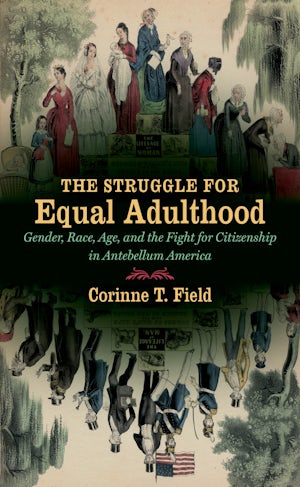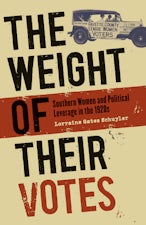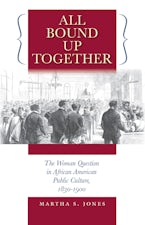The Struggle for Equal Adulthood
Gender, Race, Age, and the Fight for Citizenship in Antebellum America
By Corinne T. Field
260 pp., 6.125 x 9.25, 10 halftones, notes, bibl., index
-
Paperback ISBN: 978-1-4696-1814-2
Published: September 2014 -
E-book EPUB ISBN: 978-1-4696-1815-9
Published: September 2014 -
E-book PDF ISBN: 979-8-8908-8630-9
Published: September 2014
Gender and American Culture
Buy this Book
- Paperback $39.95
- E-Book $19.99
For Professors:
Free E-Exam Copies
In detailing the connections between the struggle for equality and concepts of adulthood, Field provides an essential historical context for understanding the dilemmas black and white women still face in America today, from "glass ceilings" and debates over welfare dependency to a culture obsessed with youth and beauty. Drawn from a fascinating past, this book tells the history of how maturity, gender, and race collided, and how those affected came together to fight against injustice.
About the Author
Corinne T. Field is a lecturer in the Corcoran Department of History and the Women, Gender, Sexuality Program at the University of Virginia.
For more information about Corinne T. Field, visit
the
Author
Page.
Reviews
"Sheds new light on the early women's rights movement in the United States. . . . Essential reading for anyone interested in nineteenth-century reform and in women's history."--Journal of American History
“An admirable contribution, refreshing, strongly argued, and insightful.”--American Historical Review
“An innovative intellectual and cultural history of the relationship between rights, sex, race, and age.”--Journal of the History of Childhood and Youth
“Field’s accessible and important book reveals the possibilities and limitations of broad movements for equality.”--North Carolina Historical Review
“A cultural history that blends the intellectual and the social to uncover how reformers sought to meet their goal, and [Field’s] analysis of thought is meticulous and enlightening..”--The Historian
"In this book, Corinne T. Field not only illuminates a significant issue for feminists and abolitionists, but she also shows how adulthood united these two movements, if only fleetingly. A pleasure to read and an important contribution to the history of women, race, and citizenship in the United States."—Carol Faulkner, Syracuse University



